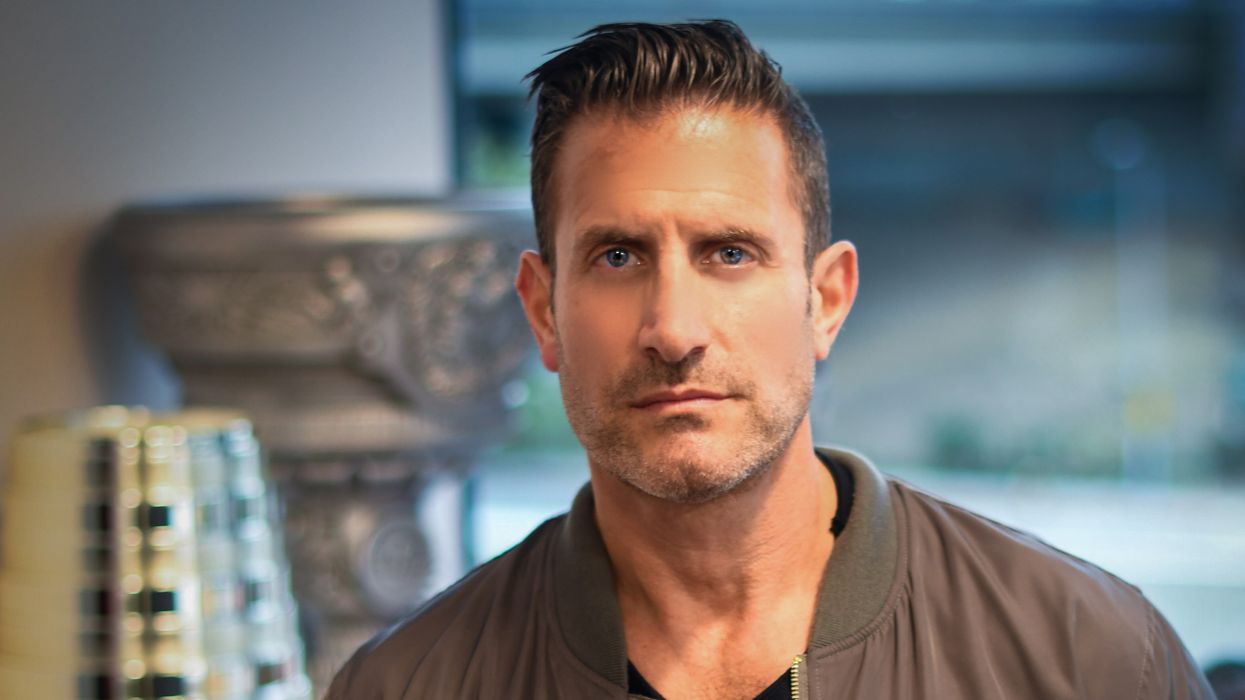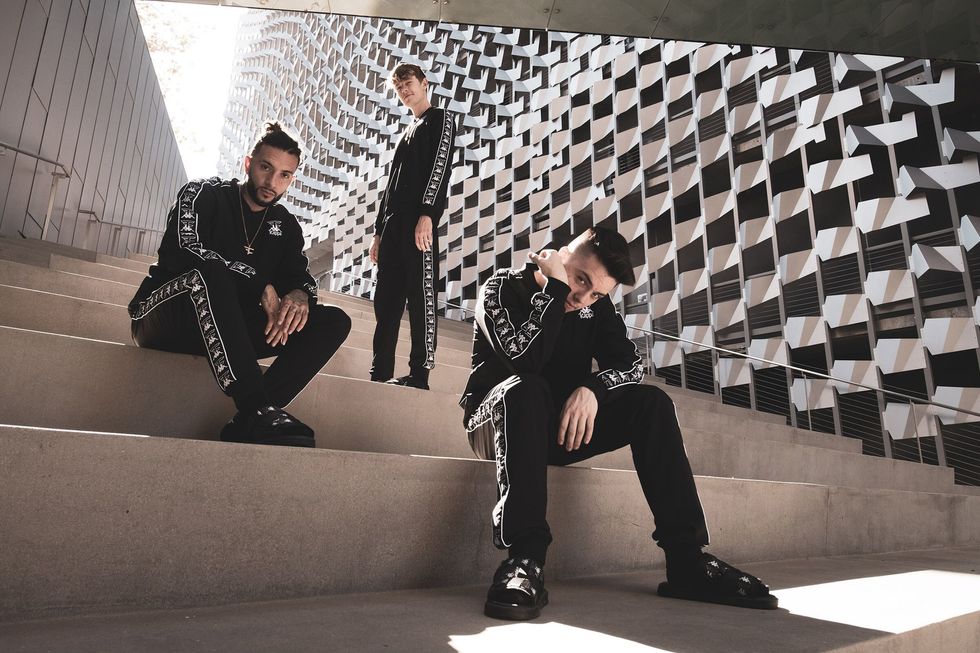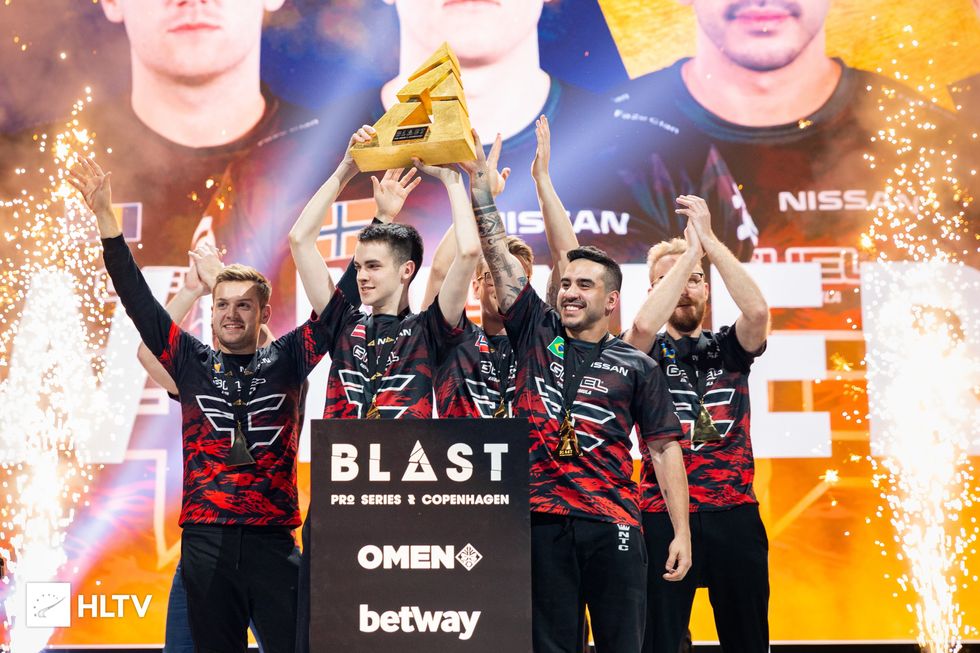It's quite a vision for a company that ten years ago consisted of three dudes posting YouTube compilation videos of their Xbox escapades: "like skate videos," co-founder Thomas Oliveira, better known as FaZe Temperrr, told Hypebeast, complete with "dope music" and "cool edits." Soon enough, Temperrr, along with FaZe Banks, FaZe Rain and FaZe Apex, realized there was serious money to be made in online videos. Eventually they began competing professionally, and winning. As their accolades and YouTube libraries grew, across both individual accounts and the shared FaZe-branded channels, so did the fans.
In those early days, FaZe members embraced vlogging, turning the camera on themselves as their warrior and soldier characters kicked butt and performed stunts on screen. "They were the first ones to represent themselves as gamers, totally unapologetically," Trink told dot.LA. "That woke up an enormous community of underappreciated gamers."
Today that community numbers over 215 million followers across FaZe Clan's social media platforms and those of its roster of gamers and content creators, many of whom continue to play and post under FaZe-prepended monikers. The company claims its videos yield over 500 millions views per month. A host of celebrities have invested, including musicians Lil Yachty and Offset, and professional athletes Ben Simmons and Juju Smith-Schuster; many of them consider themselves part of the crew.
 Faze Temperrr, FaZe Blaze and FaZe Adapt are 3 members of FaZe Clan
Faze Temperrr, FaZe Blaze and FaZe Adapt are 3 members of FaZe Clan
A big driver of FaZe's appeal, Trink says, is that fans not only feel close to the talent, but also have a sense that they, too, could one day join the ranks.
"Not that long ago," Trink said, "we signed an 11-year-old. The proximity to be a part of us, in addition to being an extension of us, is part of what makes them so passionate."
In 2019, that passion summed to $35 million in revenue, spread more or less evenly across sponsorship and brand deals, esports, merchandise, and advertising from content. FaZe Clan has reportedly inked seven-figure partnerships with Nissan and energy drink G Fuel, and has made apparel deals with brands like Champion. In one of its recent "drops", FaZe Clan sold limited-edition $80 hoodies and $40 t-shirts in collaboration with the NFL's virtual draft this April.
"It's transcended a hobby or a pastime and has become how (fans) define themselves," Trink explained.
Some of FaZe Clan's talent live together in a house in the Hollywood Hills. Mostly men in their 20s, many of their walls are adorned with YouTube plaques commemorating subscriber milestones, reminiscent of a music star's collection of gold records. The vistas from large windows in the upscale house are beautiful. FaZe members report working hard, though, often filming throughout the day and editing their videos into the night.
 Esports currently comprises about 25% of FaZe Clan's revenue
Esports currently comprises about 25% of FaZe Clan's revenue
One of the house's resident cats, FaZe Barry, himself has over 400 Instagram followers, despite having no photos posted on his account.
When FaZe Clan's admirers have an opportunity to come out in person, the number of fans can be overwhelming. A pop-up shop in New York City last year had to be shut down by the NYPD due to security concerns when lines to meet FaZe members stretched far beyond expectations.
Commanding such frenzied adoration through a youth-fueled energy has brought FaZe Clan some controversy. In one instance, certain FaZe members are thought to have been involved in an offshore esports gambling ring which, though not necessarily illegal, was widely considered shady. Loud contract disputes between FaZe Clan and some members have been an ongoing sideshow. But Trink mostly shrugs it off.
"The reality is when you are leading culture in the way we're leading culture, you don't do that with some type of whitewashed brand," he said.

FaZe Clan CEO Lee Trink
Looking forward, Trink highlights two growth areas for FaZe. One is content, which he expects to grow to over 50% of total revenues.
"On the content side, the quest is to be a dominant force in entertainment overall, not just in gaming," he said, while emphasizing that it's important to him that FaZe doesn't "lose sight" of its gaming roots. The partnership with Sugar23 is a piece of that growth strategy.
The other growth area is global. Although over half of FaZe Clan's fans are outside North America, Trink says he wants the company to have "boots on the ground, regionally around the world" to cultivate talent and produce content.
Being headquartered in Los Angeles should help. Trink serves on Mayor Eric Garcetti's esports council, which he's put together to help make L.A. the global center for esports.
"If we weren't in L.A.," Trink said, "I don't think we would have achieved things like the FaZe Studios deal and some of the other deals we're working toward."
Those deals include developing longer-form film projects and a potential partnership with an unnamed large music company. Trink is intent on working with new partners to reimagine how media can be combined in interesting, more "significant" ways that "elevate the industry and elevate the culture of gaming." The ambition is high for a company already well accustomed to deal-making; "We try to make it a common practice of blowing people's minds," Trink noted.
Although the pandemic has changed tomorrow's virtual celebration from what the company originally had in mind, Trink is excited. "It'll be a great moment for all of us, to look at each other and take some pride in what we've done."
And on Monday, it'll be back to work, with big plans ahead.
From Your Site Articles
Related Articles Around the Web


 FaZe Clan CEO Lee TrinkCourtesy of Lee Trink
FaZe Clan CEO Lee TrinkCourtesy of Lee Trink Faze Temperrr, FaZe Blaze and FaZe Adapt are 3 members of FaZe Clan
Faze Temperrr, FaZe Blaze and FaZe Adapt are 3 members of FaZe Clan Esports currently comprises about 25% of FaZe Clan's revenue
Esports currently comprises about 25% of FaZe Clan's revenue